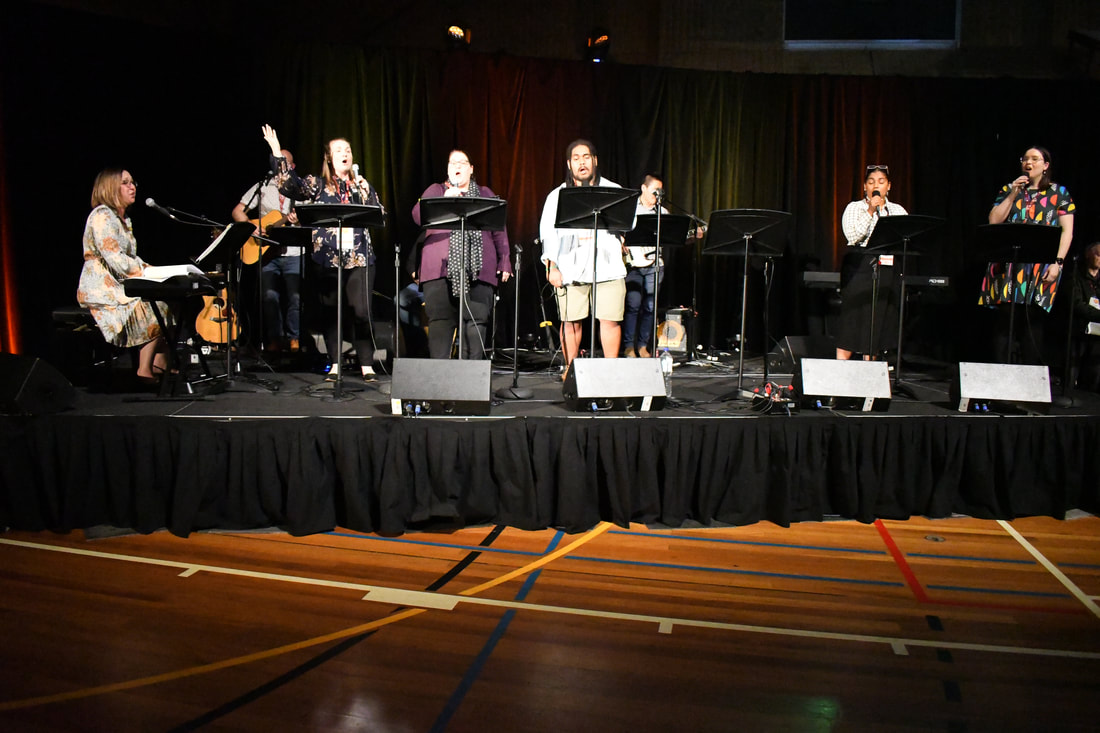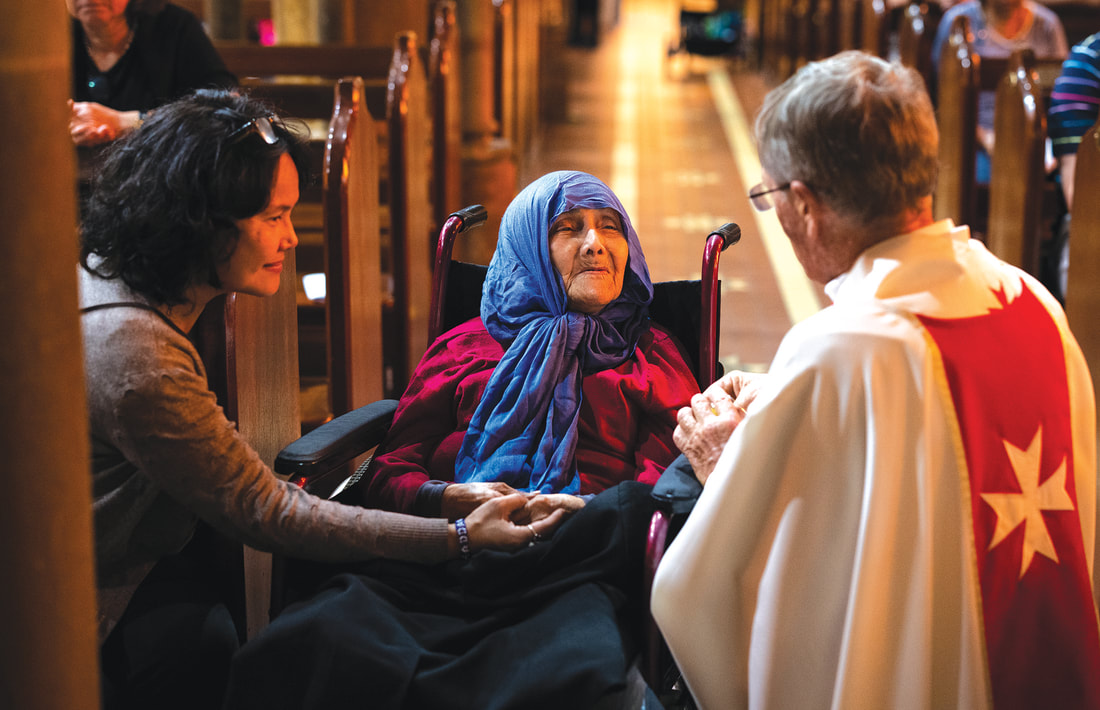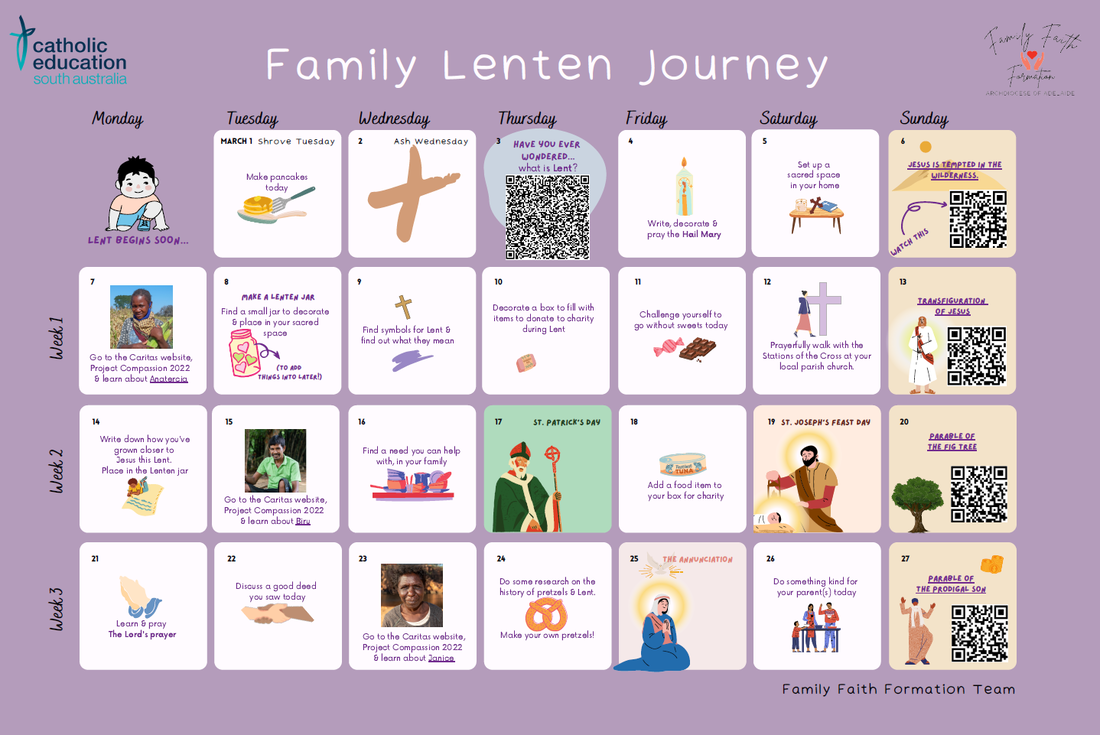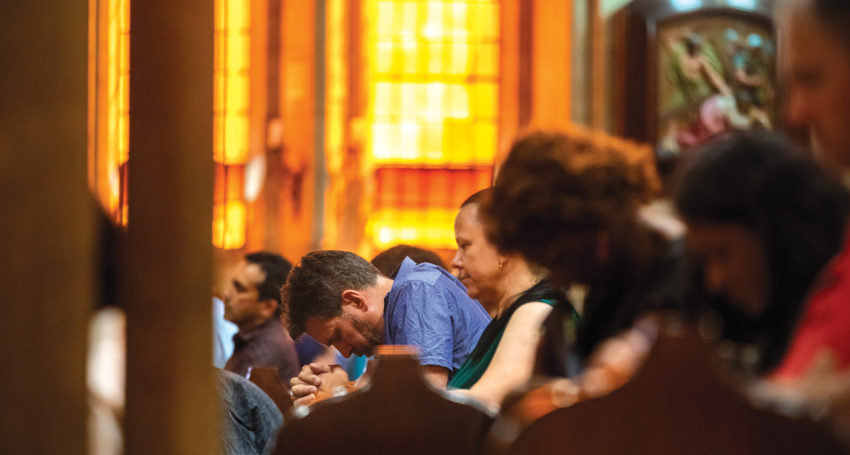|
By Lauren Bierer The Archdiocesan Pastoral Services Team recently hosted a retreat at the Henley Beach parish hall for liturgical musicians. An invitation to take time in prayer, reflection, and renewal in the company of other musicians.
The day was led by David and Emma Kruse, who work for the Brisbane Archdiocesan Office for Evangelisation. In 2022, the Kruses launched Enemy Love Records as a platform to produce and promote high quality Catholic music and to support a ministry to musicians and artists. The retreat brought together choir members, professional musicians, cantors, guitarists and accompanists who volunteer their time and talent to their parish. There is a great need for those in the music ministry in our parishes to be renewing ourselves each year. Reflecting on the music we know, the music we’d like to introduce and what can be put on the shelf to rest for a while. The breadth of repertoire available to us can be equally a blessing and a hindrance; with beloved hymns and chant from long ago as well as new music continuously being created as our congregation evolves.
0 Comments
By Dr. Jenny O'Brien The experience of sickness and suffering can make us feel anxious and alone. We need someone to be with us, to comfort us, to listen to us, to encourage us. This doesn’t apply only to the person enduring the pain or illness, but to those who love them and care for them who wonder, ‘What can I do? What should I do? Who can I turn to?’
Sometimes these questions confront us as we or someone we love is faced with the prospect of a serious operation or treatment. Sometimes they strike us when we are in the midst of deep distress or depression. Sometimes it is as we sit with someone we love who is nearing their death. Sometimes it is as the difficulty of coping with ongoing chronic pain overwhelms us and we wonder how we can cope. And sometimes it is as we endure the sheer frustration of the increasing limitations that come with ageing. By Lauren Bierer It’s as true for children as it is for adults: faith must be practised. We can teach, certainly, and instruct and inform. But what will be remembered are those tangible, in-the-flesh actions that get God out of our heads and into our hearts and hands.
It’s as true for children as it is for adults: faith must be practised. We can teach, certainly, and instruct and inform. But what will be remembered are those tangible, in-the-flesh actions that get God out of our heads and into our hearts and hands. Life moves fast, though technology isolates us from one another and our busy schedules keep us moving at warp speed. Within this landscape, feeling connected to others and to our faith can be difficult. Extended families rarely live in close proximity, parents work long hours, children are overwhelmed by homework and extra-curriculars and all the while, parents may feel isolated in raising their own children. By Lauren Bierer We each talk about what we are choosing to add or subtract from our day to draw our focus on the Lenten season and essentially our faith.
That could look like screen-free time after dinner to create opportunities for silence or conversation. It could be acknowledging our tendencies to choose words of bitterness or sarcasm and replacing that with words of kindness. It could be as simple as saying a prayer of thanks before dinner. Lent invites us to take a step back and reflect on our life. Many people ask ‘what should I do for Lent?’ or ‘what should I give up for Lent?’ By Dr. Jenny O'Brien The words ‘through Christ our Lord, Amen’ are familiar to us as the conclusion to many of the Church’s formal prayers.
During Mass they end the Prayer over the Offerings of bread and wine, and the Prayer after Communion. At the end of the Collect (Opening Prayer) they appear in the longer form: ‘Through our Lord Jesus Christ, your Son, who lives and reigns with you in the unity of the Holy Spirit, God for ever and ever. Amen.’ And at the end of the great Eucharistic Prayer there is the even longer form: ‘Through him and with him and in him, O God almighty Father, in the unity of the Holy Spirit, all glory and honour is yours for ever and ever. Amen.’ You may be surprised to know that these simple phrases are extraordinarily rich in theological meaning. They help us to understand how we, the baptised faithful, relate to the risen Jesus and to the three divine persons of the Trinity: Father, Son and Holy Spirit. Author: Jenny O'Brien Early in June we celebrated the feast of Pentecost, often referred to as the “birthday of the Church,” when Peter and the other apostles presented the Good News of Christ to the Jerusalem crowds who heard them speaking in their own language. So we could say that, right from the beginning, the character of the Church has been multicultural!
Today our parishes are more and more made up of people from countries around the globe who have settled in Australia either through normal channels of immigration or because they have fled war or persecution in their home country. And yet, in many instances, long-term Australian residents remain unaware of the many different cultures that are represented in their parish and still see themselves as predominantly Euro-Australian. Since the first characteristic of any Christian community ought to be hospitality, we would do well to reflect on the way we celebrate our Sunday liturgies so that all members of the community feel appreciated and included in the liturgy. What is involved in preparing a “multicultural” liturgy? |
|
Catholic Archdiocese of Adelaide
|





